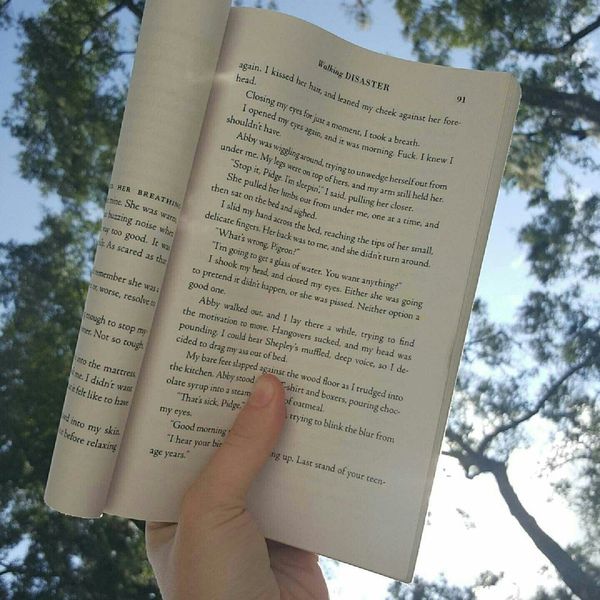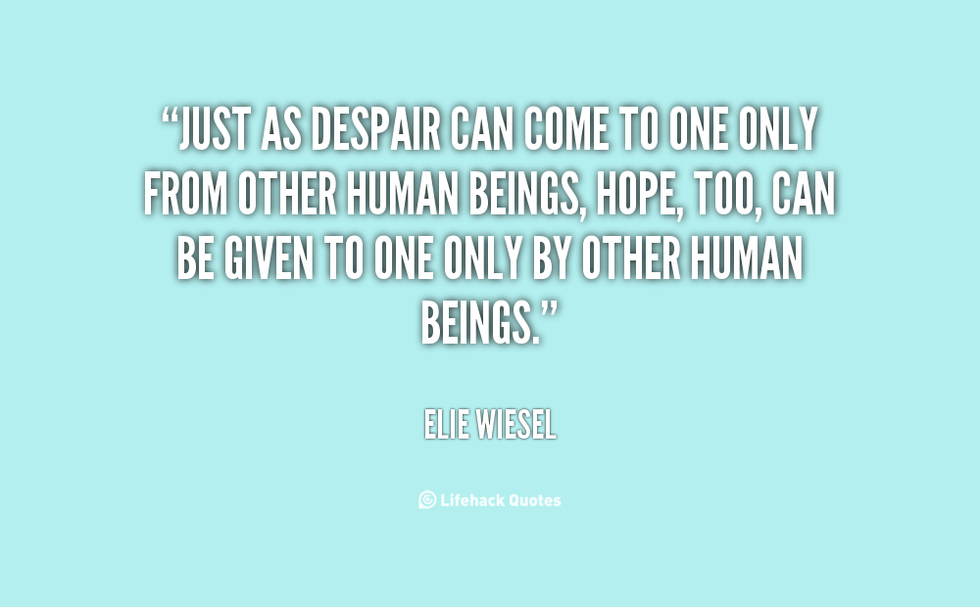Within the last couple of days, I've read another story written by one of the most iconic authors the world had to share; Elie Wiesel. A while ago (we're talking years ago), I've read his memoir Night and fell in love with his brute honesty and wordplay when discussing the inexcusable events of his past in World War II. It was then, I've always strived to write in a similar matter to him even though many of my works are nothing but pure fiction. He was someone who wasn't afraid to exploit truth and remembrance to his history as a survivor and I found it to be an absolute treasure.
As someone who comes from a family that was never victimized by Holocaust, I found it to be a gripping history lesson from someone who took the chance to relive his memories within words. He was never a soldier in combat, but a soldier in literature. He like many others were desperate to make sure history was never going to repeat itself again in the future. Sadly, I couldn't help but wonder if it is repeating in a tragic circle but with different people coming into play.
In Dawn, Wiesel wrote it as a work of fiction to describe a male's outcome after enduring the Holocaust and a false sense of future for another chance of life. It was then, he was offered a position to work for the resistance that attacked British Soldiers so they can have their country's independence back. Being at the tender age of eighteen, he ended up taking the position so he can figure out his purpose. As I was reading this, I couldn't help but question if this is how people from the ISIS terrorist group influence the younger audience for a brighter future even though they may up in death. In this quote, " God is a member of the resistance movement, a terrorist." it sort of conflicts the different sorts of religious views we as humans allow us to choose and follow however we may please. But, at the same time, I can't help but blame that word for being a source of terrorism. It brings radical views and most of the time we are to point blame on a word that may never exist in reality. Reading the mindset of a doubtful 'terrorist' such as this narrator, it helped me understand that we are all human, it's only what influences us to get us where we are practically destined to be a part of; indifferent.
Not only that, it helped me understand war in a philosophical sense; which is why I'm a huge fan of this author's work. Elie Wiesel knew in his heart that war was something that can never be solved much like all of us today believe that. In his words, I felt as so I was a soldier in doubt to go into combat for the homeland and if murder was truly in my blood. I can't express the feeling of a soldier because I am not one, but reading the words made sense to understand what life and death are like in war.
All in all, I really don't have any words to describe this short story. Regardless of the fact it only had 81 pages, I felt that it impacted me more than novels that are over 300 pages. It makes me think of history and the current events that are roaming around us as we speak and write these articles. Perhaps in a sense, Wiesel was a person of warning since he was one of many that endured a true hell, but it still leads to asking many more questions than answers. How can we be sure that history will not repeat itself with Islam and Christianity? How can we be sure that if we were to enter another great war that we don't end up creating stations of another hell for those that are different? So many questions, and so little answers for us to see. If you guys like Wiesel, then read the rest of his 'trilogy' and other books from authors such as him, it teaches you and allows you to think so differently than before.




















